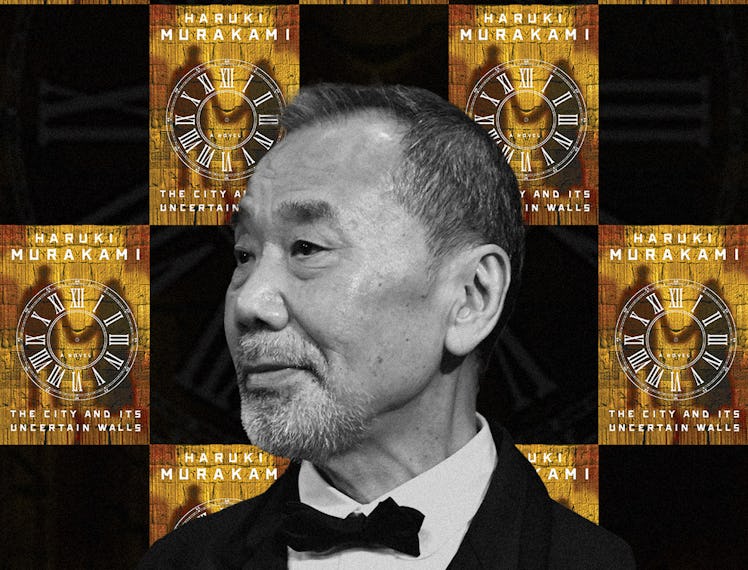Two nights ago, many New Yorkers went to Charli XCX’s surprise performance in Times Square, then crammed together for an after party at the Chelsea Hotel. Others packed into Three Lives & Company, a small West Village bookstore, at 10 PM to celebrate the midnight release of Haruki Murakami’s new novel, The City and Its Uncertain Walls.
While waiting to buy the new book—which was hidden away until the clock struck midnight—people flipped through copies of the Japanese writer’s other novels, like Kafka at the Shore and Norwegian Wood, drank sake, and answered Murakami trivia when the bookstore’s employees banged a gong. In addition to Three Lives & Company’s, which has hosted several Murakami midnight releases, events were held at Brooklyn’s Greenlight Bookstore and Chinatown’s Yu & Me Books, as well as in Los Angeles, San Francisco, Columbus, and St. Louis.
Imagine a sneaker drop, but instead of rabid hypebeasts waiting for hours at a store to get their hands on a limited-edition shoe, it’s patient bibliophiles waiting for hours at a store to be among the first to read a new work of magical realism.
The new novel begins with a lonely, nameless 17-year-old boy falling in love with a lonely, nameless 16-year-old girl. She tells him about a town with very high walls, where her “real self” lives. In that town, there are no books, but there are unicorns. Shadows are cleaved from people upon entry. The girl disappears, the boy is distraught. Time passes, and on his 45th birthday, he falls and wakes up in that town, which may or may not exist in a parallel reality. “There isn’t just one reality,” the man thinks late in the novel. “Reality is something you have to choose by yourself, out of several possible alternatives.”
The book is a remix of Murakami’s 1985 novel, Hard-Boiled Wonderland and the End of the World, which was a remix of his 1980 novella, The City and Its Uncertain Walls. The issue with the first iteration was that “back then, I lacked the writing skills I needed to do it justice,” Murakami told The New Yorker. The first rewrite “was too soon… I was still young, and my storytelling stance tended to be a bit impulsive.”
Neither Murakami (nor his shadow) were at the party. But the bookshop workers did take photos to send to the 75-year-old author, who lives in Japan.
Midnight book releases have drawn crowds since thousands of eager Harry Potter fans lined up outside stores to buy Goblet of Fire, J. K. Rowling’s fourth book in the series, the minute it was released in July 2000. At a particularly difficult time for the book industry—as publishing houses are shrinking and consolidating, and as the number of adults who read books is nose-diving—publishers are championing the midnight drop. In September, Greenlight hosted a midnight release for Sally Rooney’s newest novel, Intermezzo—one of 140 Rooney-related events held around the country that week.
In The City and Its Uncertain Walls, the narrator eats blueberry muffins from a nameless coffee shop. They are “hot and fresh,” “really good,” and “delicious.” For the party, Christina Tosi, the founder of Momofuku Milk Bar, made bite-sized muffins—“Murakuffins”—inspired by the book. While they were not hot, they were really good and delicious.
